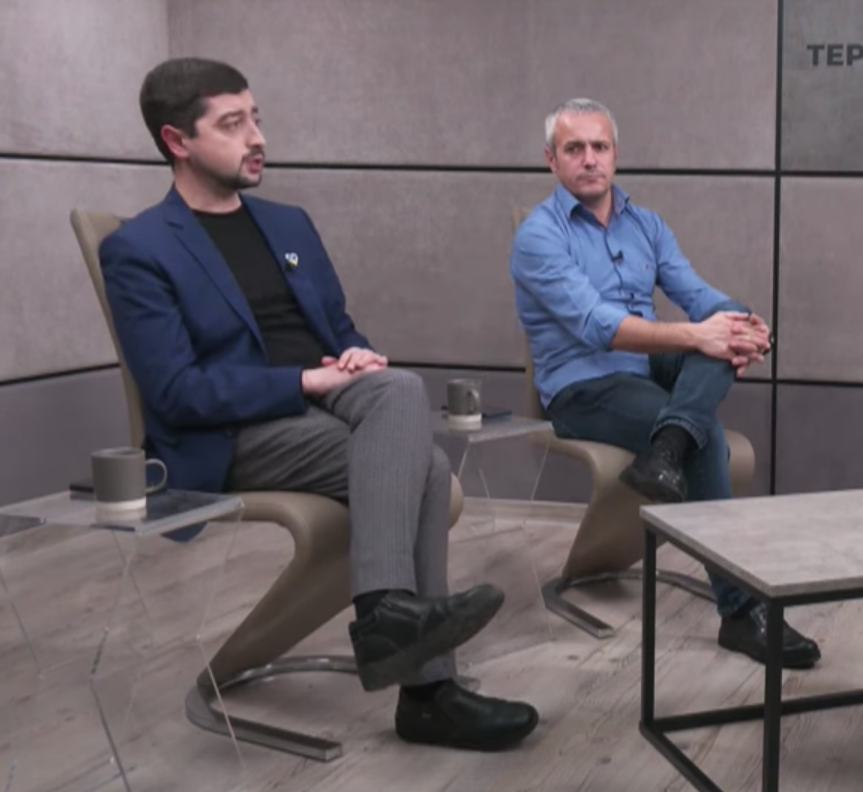VIDEO DEBATE: HOW MOLDOVAN SOCIETY REACTS TO DISINFORMATION

We have collected for you the main statements made by the participants in the program “Territory of Freedom” with Lilia Burakovsky, with the participation of the sociologist Vasile Cantargi and the communication expert Valeriu Pasha. This TV debate makes part of the project reforMD – Resilient against Disinformation in the Republic of Moldova.
About the Moldovan society’s reaction to propaganda
Valery Pasha: There are positive trends, but it is too early to say that everything can be reversed. Before Russia’s invasion of Ukraine, Putin’s approval rating in Moldova was about 55%. After the invasion, about 33-34%. This suggests that Russia’s informational influence in Moldova has diminished.
Russian propaganda has two goals: the first is to draw people to its side, and the second is to make people not believe the truth. I think that so far they have been successful in this.
Vasile Cantargi: A citizen’s vulnerability is not necessarily in his or her language of communication. There are pro-Western Russian-speaking and pro-Russian Romanian-speaking citizens of Moldova.
Valery Pasha: Half of those who support Putin’s regime are the titular nation. It’s not just ethnic minorities. Yes, it is clear that among ethnic minorities, the percentage of support is higher. Yes, where these people are informed from is very important. But even if it is the Russian media, a lot of Moldovans watch it, and their main language of communication is Romanian.
We have a problem of ethnic minorities being pushed out of the information field in Moldova because they don’t have access to information in Russian. That is, these are people who are not informed about what is happening in the country, and this is a huge problem. It is very important to provide access to information in Russian.
About the consolidation of Moldovan society during the first days of the war of aggression by Russia against Ukraine
Valery Pasha: The behavior of the media was very important. While many gave breaking news on the progress of the war in Ukraine, another part of the Moldovan media simply forgot that there was a war in a neighboring state and that it was important to inform people about it.
How the attitude of Moldovans to NATO has changed
Valery Pasha: In the first week of the war, we recorded an increase in support for NATO among the Moldovan population, but this figure did not go over 50%. This support dropped again to 35% when Zelenski asked for a blockage of the sky over Ukraine, which was not done, and then criticized NATO rather harshly.
Vasile Cantargi: The difference between perception and behavior is very well illustrated in Moldova on the basis of the Unionist ladder. We have 70% of the people in Moldova have a positive perception of neighboring Romania. But when we ask them, in a hypothetical referendum, would you vote for unification, the last few months, 35% answer positively, and when it comes to elections, the number of people who support unionist parties is even less.
About the lost information war in the energy crisis
Valery Pasha: There is a simple rule: if you do not participate in the game, it goes on without you. In the case of the information war on the issue of energy, the Moldovan leadership hardly participates in it. At most, they respond to some current issues. But the authorities have no strategy for convincing people. In the information war, you have to fight, and not just fight back at least sometimes. It is a political issue which should have been turned against the pro-Russian parties in Moldova, and it should have started with full transparency in the 2021 negotiations. Even now, it is not too late, to come out and tell what happened there, rather than let the Russian side explain to Moldovan citizens how and what happened there.
This is a crucial topic that hits people’s pockets. And countering misinformation on this topic, without the support of a government that is more silent than informing, is quite difficult. We had a situation last fall when literally a few people from civil society were informing the public and holding the pressure of disinformation. But then Mr. Minister Spynu came along and he completely undid all of our work.
About the perception of Western financial aid to Moldova
Vasile Cantargi: Before the war in Ukraine, when asked which of the external partners provided more aid to Moldova, people answered that it was Russia. This shows how the media inform people about the assistance that external donors provide to Moldova.
Valery Pasha: The problem of informing people is more complex. I would not put everything on the shoulders of the Moldovan media. The problem here is the level of communication of international institutions and the EU in particular. Few people are willing to explain all this. First of all, this information must be somehow provided. It is the job of the Moldovan government and international partners to explain what funds are spent and for what purpose. It is not that journalists do not want to explain, we must first explain to journalists.
About the perception of the Moldovan army
Vasile Cantargi: Remember that when we ask about trust in institutions, people always answer first and foremost that they trusted the church, with the army in second place. That was in non-war times. But as soon as the war started, we began to see a decline in trust in the army. This is because when people make a realistic assessment of the situation, their perception is strongly influenced by the weight of the potential aggressor.
About European practices of combating desinformation
Valery Pasha: There is no clear legislation against disinformation in democracies. We would be happy to adopt a clear model, but it’s more complicated than that. Because we’re talking about freedom of speech, democracy, and non-interference by the state.
For the first time ever, we have a Television and Radio Council which does exactly what it was set up to do. That is, the existence of institutions and people who deal with laws is no less important than the laws themselves.
The project #reforMD – Resilient against Disinformation in the Republic of Moldova is implemented by The Institut für Europäische Politik based in Berlin (IEP) in partnership with the Institute for Strategic Initiatives of Moldova (IPIS) and the Institute for European Policies and Reforms of Moldova (IPRE) with the support of the German Federal Foreign Office.



 Română
Română Русский
Русский